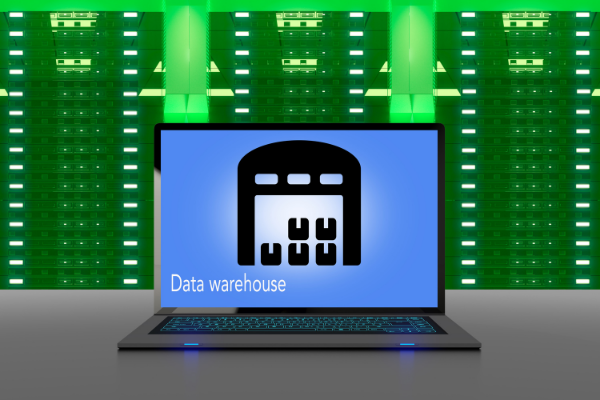Table of Contents
The future of data storage is increasingly on the blockchain not so much because it is still cheaper than the services we have today but because it is cooperative. Like Airbnb or Uber, they use the excess capacity of all the systems in the world to bring down the cost of data storage to another scale. Today, it is already possible to combine the efficiency and reliability of the cloud with the decentralized security and control of the cooperative cloud storage model, all of which makes it the basis for yet another revolution in data storage.
Cloud storage has taken over the market for one reason: the cost per terabyte per month has dropped dramatically over the past few years and therefore companies no longer need to build and maintain their own server systems, pay for backups and maintain the group of experts it takes to keep it all running.
However, the downside is, even though the costs are significantly lower and the convenience of the system has improved, companies are actually entrusting all their data to third parties with all that entails.

The true cost of storing data
Compared to decentralized data storage systems, cloud storage is quite imperfect. First, because we only have traditional systems as a frame of reference. Secondly, we tend to think of data security as a matter of redundancy and uptime and forget the issue of data encryption. Thirdly, we almost completely ignore the fact that, as we mentioned at the beginning, data is in the hands of third parties.
Thanks to flexible contribution, several companies are able to rent out their redundant storage and the compounding effect of this practice will further reduce costs on all fronts. Data security is made possible by geo-distribution algorithms. Data is stored everywhere in the cloud, which means that there is no single intermediary. This translates into total decentralization and true redundancy, complete privacy and a 1000% reduction in costs.
Prices for blockchain storage companies are already lower than the big players currently dominating the market with products such as Amazon’s S3, Microsoft Azure and Google Cloud.
– Blockchain storage: $10/mo.
– Amazon Web Services: $115/month
– Microsoft Azure: $120/month
– Google Cloud: $100/month
These low costs continue to improve due to increased adoption, as the market is experiencing drops of up to 800% relative to traditional cloud storage systems. On top of all this, speeds have increased 10-fold, so the improvements brought by blockchain-based data storage are huge.
Benefits in the industry
Let’s review some of the major benefits blockchain brings to cloud storage:
– 100% private: Blockchain storage systems break data into chunks, encrypt the data and distribute it across a decentralized network. The user holds the keys to the data and therefore only the user has access to it.
– Redundancy: Your files are stored on hundreds of nodes around the globe. There are no failed hard disks, the uptime is practically 100%.
– Cost downward trend: As the number of nodes increases due to the adoption of this technology, prices will decrease due to the increase in supply.
– Open source: Most of the systems are built by communities of experts with common ideals where they seek to enable everyone to share the benefits of a more connected and free Internet.
– Immutability: this is one of the most useful features of a blockchain data storage system. As we already know, this means that once a record is placed on the blockchain it will be there forever along with the date and time the record was made.

Examples of platforms
To conclude let’s look below at some examples of companies that are using blockchain to offer decentralized storage.
– BigChainDB
Cloud storage with high volume and very fast transactions. Built on the RethinkDB cluster and uses NoSQL mechanisms to store blocks, thanks to which it has high fault tolerance and capacity.
All BigChainDB network members are connected to a single cluster and have full rights to record, change and delete information, so this case is not suitable for public solutions. But it can be used for private corporate tasks such as: account statements, asset tracking or financial data.
– Storj and Sia.
These are companies that operate as trading platforms. They promise cheaper, faster and more secure storage. They profit not only from rental fees, but also from commissions to perform transactions related to data uploading and extraction.
Storj and Sia’s scheme of work is, in fact, a mediation between those who bid for hard drives and those who rent them. Blockchain is used for recording transactions, financial calculations and authentication of files in databases. At the same time, user data is stored outside the framework and can be deleted or become unavailable at any time if the owners decide to delete it.
– TiesDB.
TiesDB is not formally a blockchain, as it is just a decentralized cloud storage that uses smart contracts to motivate and punish participants, store mutual agreements of participants, as well as store information about insurance rates and deposits.
In addition, TiesDB uses blockchain to reconcile conflicting information about database changes and related financial transactions. For example, if product information is stored in TiesDB databases, information about the quantity of goods must also be entered into the database. If this is not done, the buyer may pay for goods that are no longer in stock.
– Filecoin.
A platform based on the same practices as Storj or Sia. The only difference is in two details:
1. The platform is intended to stimulate the joining of medium-capacity nodes in order to avoid the threat of centralization by high-capacity nodes and instability by lower-capacity ones.
2. The system will try to find nodes to store data as close as possible to the users who lease them. This will increase the speed of uploading and downloading, as well as reduce the probability of errors during data transfer.
Using these innovations, as well as a unique consensus mechanism that stimulates an increase in online disk space, Filecoin intends to bypass Google and Amazon in terms of storage capacity in the coming years.
– Maidsafe.
The main idea of this solution is the creation of a fully encrypted P2P network, which will be a database for the anonymous exchange of information through encrypted layers. This will be possible thanks to three key elements of Maidsafe:
1. self-encryption:
Data that encrypts itself. When a file is uploaded to the Maidsafe network structure, it is split into many small fragments that are automatically encrypted and distributed across the network. At that point, the file becomes unreadable to everyone except the owner.
2. Distributed data caching.
Data from the SAFE network will be stored around the world, rather than on servers in a single company or network of companies. This will make the platform autonomous and increase the level of information security.
3. Data availability.
The network constantly creates and maintains duplicates of all the files it stores. This function leads to redundant information, which must be protected from loss due to the shutdown of individual nodes.




